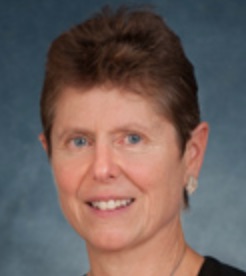Dr. Darlene Solomon is chief technology officer for
Agilent Technologies, advancing chemical and biological measurements in the life sciences, diagnostics, and applied markets. After earning a bachelor's degree in chemistry from Stanford and a PhD from MIT, she joined
Hewlett-Packard Laboratories where she held a variety of research and management positions before joining Agilent when it was spun off from HP in 1999.
 Marian Cook: What does a CTO do for a multibillion-dollar, life sciences, technology company?
Marian Cook: What does a CTO do for a multibillion-dollar, life sciences, technology company?
 Darlene Solomon:
Darlene Solomon: A good portion of my time is spent on corporate, long-term, technical strategy, aligning short and longer-range projects with these longer-term goals. I become more involved in new, potentially disruptive technologies; steer Agilent's external research collaborations with academic, government and industrial partners; and contribute to the company's intellectual property and [
mergers and acquisitions] strategies.
MC: How does being a scientist fit into your job?
DS: For the first five years of my work experience after getting my PhD, I was a scientist at HP on a range of assignments. After that gig, I was interested in trying management, although I was concerned that I might not enjoy or be good at it. I took that step figuring that if it didn't work out, I could always return to being a scientist. It turns out that I like management even more than being an individual contributor.
I like learning, thinking about a wide range of things, and gaining a broader perspective. I frequently am involved in research that is well beyond my scientific training. An example is when I first became CTO and oversaw [research and development] in our semiconductor and electronics businesses (now Avago and Keysight Technologies, respectively).
Even now, in life sciences, technology continues to advance rapidly, but my background in chemistry is helpful.
My job is not about having the technical expertise and answers but having the right mindset and asking the right questions. The experience of earning a PhD provides an approach to research that, to a large extent, transcends specific, technical disciplines. I have been told that a strength of mine is my combination of technical depth and business acumen, and there are benefits to both.
MC: Are there leadership principles you follow?
DS: My guiding principles are:
- 1. Strive to contribute to goals you care about and problems that matter.
- 2. Challenge the status quo with insightful questions.
- 3. Enjoy what you do; that is when we are at our best and most often successful.
MC: How would you define your leadership style? Do you think leadership can be learned?
DS: Key elements of my leadership style are:
- 1. Collaboration as the essential value-driver. All ideas come to the table for discussion, but that does not mean making the decision by consensus.
- 2. Logic. It is important to use logic to deal with and communicate difficult situations that do not have simple answers.
- 3. Compassion and empathy. Understand leadership is about caring for people and building an environment of trust.
Many can learn to be leaders and adapt leadership to their style, but not all can. Being a great manager can be learned. But being a great leader? Less so.
Leadership is much easier if it comes naturally with some intuition and self-awareness. Consider factors like what to emphasize or when to be flexible. Mastering things like these is difficult. Leadership is easier if it is already inside you.
MC: What lessons did you learn at your job?
DS: I realized strengths and weaknesses are different ends of a continuum, and one can be used to offset the other. For example, I am not good at promoting my contributions. I do, however, love to talk about the research going on in my organization, and that indirectly reflects well on me.
Another example is that I have a strength in fostering collaboration and wanting teams to have a voice to help drive the best solution. This strength helps offset my weakness in not having all of the technical answers.
This interview was originally published by
ComputerWorld.
Marian is currently an Artificial Intelligence Strategist for Ageos. Immediately prior, she was the Chief Strategy Officer for Innovation and Technology for the State of Illinois, having moved from the private sector to public service in 2015. She started as a systems engineer with IBM, re-engineering processes, implementing systems, and creating business and technology strategies. Moving to international consulting firms, she worked globally, developing business growth and turnaround strategies.
Opinions expressed by the author are not necessarily those of WITI.
Are you interested in boosting your career, personal development, networking, and giving back? If so, WITI is the place for you! Become a WITI Member and receive exclusive access to attend our WITI members-only events, webinars, online coaching circles, find mentorship opportunities (become a mentor; find a mentor), and more!
Founded in 1989, WITI (Women in Technology International) is committed to empowering innovators, inspiring future generations and building inclusive cultures, worldwide. WITI is redefining the way women and men collaborate to drive innovation and business growth and is helping corporate partners create and foster gender inclusive cultures. A leading authority of women in technology and business, WITI has been advocating and recognizing women's contributions in the industry for more than 30 years.
The organization delivers leading edge programs and platforms for individuals and companies -- designed to empower professionals, boost competitiveness and cultivate partnerships, globally. WITI’s ecosystem includes more than a million professionals, 60 networks and 300 partners, worldwide.
WITI's Mission
Empower Innovators.
Inspire Future Generations.
Build Inclusive Cultures.
As Part of That Mission WITI Is Committed to
Building Your Network.
Building Your Brand.
Advancing Your Career.


 Darlene Solomon: A good portion of my time is spent on corporate, long-term, technical strategy, aligning short and longer-range projects with these longer-term goals. I become more involved in new, potentially disruptive technologies; steer Agilent's external research collaborations with academic, government and industrial partners; and contribute to the company's intellectual property and [mergers and acquisitions] strategies.
Darlene Solomon: A good portion of my time is spent on corporate, long-term, technical strategy, aligning short and longer-range projects with these longer-term goals. I become more involved in new, potentially disruptive technologies; steer Agilent's external research collaborations with academic, government and industrial partners; and contribute to the company's intellectual property and [mergers and acquisitions] strategies.
Comments